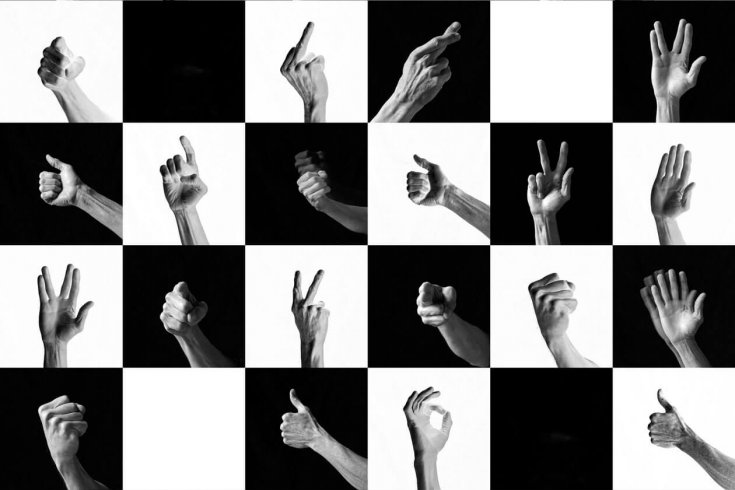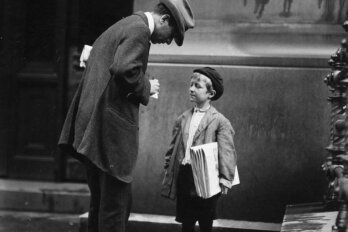“Dear White People: no one is saying your life can’t be hard if you’re white but it’s not hard because you’re white.” This perhaps overly earnest profundity comes from an August 2015 tweet by user Austin (@kvxll), that somehow made its way to my own Twitter feed. Austin’s tweets just before (“Dear straight people: no one is saying your life can’t be hard if you’re straight but it’s not hard because you’re straight”) and after (“Dear cis people: no one is saying your life can’t be hard if you’re cis but it’s not hard because you’re cis”) hone in on the same idea: Privilege is about all-things-being-equal advantage. It isn’t personal.
The contemporary use of “privilege” emerged to address an absence in the language for discussing systemic inequality in general. In scholarship, a “privilege” focus means looking at oppression not only in terms of the oppressed, but also of the oppressor. It means studying systems of marginalization by looking not only at the marginalized, but also at the nonmarginalized. Like all new (or repurposed) buzzwords and concepts, it fills a need. Inequality does exist across a wide range of intersecting axes, and the “haves” in each area really are oblivious. We probably did need a word to convey the multifaceted nature of luck, as well as the naïveté and entitlement that so reliably accompany unearned good fortune.
So on the one hand there’s “privilege,” a framework for understanding society, and on the other, the privilege call-out. This might be “check your privilege,” although a “your privilege is showing” (from here on, YPIS) may sting that much more, with its evocation of a grooming mishap that someone has only just now told you about. Mostly, though, these accusations sting because the recipient has correctly assessed that he or she is being insulted. “Privileged” functions both as a neutral descriptor and as a synonym for “entitled and willfully oblivious.” One might even go so far as to say that it’s our era’s number-one insult. So you may be technically right in pointing out that someone is privileged, but in pointing this out, you’re also telling this person off. Conversely, someone who balks at a privilege accusation might be denying having unearned advantage. Yet he or she could just as well be denying horrible person-ness.
For this reason, even supporters of using privilege as a framework will often draw the line at “check your privilege.” Peggy McIntosh, the Wellesley scholar responsible for our current understanding of “privilege,” has called that phrase “a flip, get-with-it kind of statement.” Literary critic Parul Sehgal supports use of the term “privilege,” but argued in a New York Times Magazine piece that “the shine has come off this hardy, once-helpful word. It looks a little worn, a bit blunted, as if it has been taken to too many fights.” She attributes this shift partly to the term’s online manifestations: “On the Internet, it makes for trusty kindling, and in the popular imagination, a cudgel: When people think of ‘privilege’ being used, it’s almost always as an epithet, to shame.” And in a Salon piece otherwise favorable to the concept of privilege, Mary Elizabeth Williams referred to the privilege-checking phrase itself as “the ‘Is there gluten in this?’ of public discourse, an expression so promiscuously deployed it’s bound to incite a few eyerolls along the way.”
Privilege-in-theory and YPIS-in-practice can’t be so neatly disentangled. Individual accusations of privilege often go hand in hand with abstract discussions of what the term means and why it’s so necessary. And at the root of probably every anti-“privilege” essay was its author’s experience as the recipient of one YPIS too many.
The term “privilege” is a magic potion that turns otherwise dreary ideological debates into pile-ons. It’s no coincidence that Exhibit A in author Jon Ronson’s popular study of public shaming, the one that got excerpted in The New York Times Magazine and that stemmed from publicist Justine Sacco’s Twitter joke about AIDS and Africa, was a pile-on rooted in a privilege controversy. In explaining why a tone-deaf joke—“Going to Africa. Hope I don’t get AIDS. Just kidding. I’m white!”—went viral, Ronson wrote, “[I]t was her apparently gleeful flaunting of her privilege that angered people.” So it was.
Also not a coincidence: Sacco seems to have meant for the joke to be, as Ronson put it, “a reflexive critique of white privilege—on our tendency to naïvely imagine ourselves immune from life’s horrors.” Online privilege controversies frequently stem from poorly worded or other wise naïve attempts at challenging privilege. The oblivious white anti-racist or male feminist—or in social-justice terms, the ally who wants a cookie—is often the person who inspires the most YPIS rage. It’s not that straightforward bigots or, in more neutral terms, people outside the ally framework don’t get called out at all, but when they do, it seems futile. It’s clear that there was little to be gained by telling the young white woman who brought an anti-affirmative action case to the Supreme Court that she was exhibiting white privilege. Not because she wasn’t doing this—good grief, she was—but because if there’s anyone in the world who isn’t going to be moved by a YPIS, it’s a white person making a literal federal case about “reverse racism.”
The question rarely asked about “privilege,” which is also really the only one worth asking, goes as follows: Has it helped? Has the introduction of this framework brought about a more just society?
It’s only once the framework gets examined from that angle that the flaws become self-evident. The privilege approach is, practically speaking, about raising awareness of the minutiae of injustice. While gaps remain, huge swaths of awareness have certainly been raised. And? Let’s set aside (briefly) the question of whether we’d think this would lead anywhere. Has it done so?
Jia Tolentino gets at the flaws of the awareness fixation in a brilliant December 2015 Jezebel post about the relationship between “offense” and online journalism:
Contemporary life means being hyper-aware and worse off than ever; we are increasingly shut out of the mechanisms of representational democracy and simultaneously being forced to know more and more and more. We know many rape kits are backlogged in all the big cities, how many black teenagers have been shot by the police this year, how shamelessly the NRA pulls its levers, how corporate campaign finance ensures that the wealth gap is here to stay. And we can’t change any of it—or at the very least, not very easily, not when it’s so much easier to sit around and get very precisely insightful online.
Tolentino’s point was especially striking given the context. Left and youth-leaning media generally, and Jezebel especially, has devoted itself to awareness-raising and witty-but-sensitive online observations for years. What does it say that members of the media are themselves (ourselves) tiring of this? We have, in the one corner, journalists producing intricate articles parsing exactly what was the teensiest bit racist or sexist in the (out-of-context) speech of whichever actress or male scientist, and, in the other, fairly blatant, out-there online abuse getting directed at (among others) these same journalists. It can seem—whether or not there’s any truth to this impression—that there are some forest-for-the-trees issues at play. The blame lies not just with the privilege framework in the abstract, but also with a media landscape that—for reasons that have as much to do with what readers want as with production costs—favors the churning out of “privilege” content (celebrity gaffes, navel-gazing from the ordinary-but-privileged) over, say, war reporting. (If the two pay the same, which is to say, nothing or not much…?)
Honing in on YPIS, specifically, Berkeley senior Efe Atli offers the following damning critique, in a Daily Cal op-ed (“Checking privilege serves to reinforce it”) from January 2016:
The number[s] don’t lie. Three decades of checking privilege directly correlate with an astronomical rise in income inequality. The more inequality we have, the more privilege gets checked by more privileged people, and the more the privileged feel pleasure (and power) in being aware of their privilege and so, grow in power.
That seems about right, although it hasn’t been quite “Three decades of checking privilege”—more like, at the time of Atli’s writing, eight years. Still, the culture was already neck-deep in privilege awareness when the 2016 all-white Oscars lineup rolled around. The term “microaggression” had entered the lexicon when Donald Trump started winning primaries with a platform based almost exclusively on hurling the macro variety. It goes without saying that privilege awareness didn’t bring about a revolution on the ground. Yet even when it comes to pop culture, to the more superficial concerns, even there, not much has changed since the early 2000s, at least not for the better.
There’s a limit, though, to what we can conclude from the apparent inefficacy of the “privilege” approach. Is leftist infighting (and I’m including hyperbolic criticism coming from the center left) distracting progressives from the real issues? Probably, if not necessarily in terms of individual commitment, then at least as far as media coverage is concerned. And can we root Trump’s popularity (especially because, as journalist Matt Taibbi has written, so much of it is private popularity) in widespread fears of saying the wrong thing on social media and getting fired? Here’s a guy whose thing is saying outrageous things publicly—maybe that’s only appealing in a climate where saying a slightly wrong thing (or a thing that was intentionally misinterpreted as offensive, to get clicks) is such a social crime?
Maybe. Or maybe not—there was plenty of outspoken racism, sexism, and xenophobia before the privilege turn. The causation case is there, but is tougher to demonstrate than—as Atli subtly mentions—the correlation one. Yet correlation alone should be reason enough for concern. Even setting aside the many ways “privilege” seems to have backfired, we have to consider its failure to bring about a kinder society, let alone a more just one. If “privilege” hasn’t worked—and it hasn’t—then it’s time to stop assuming that people who reject the framework necessarily do so for defensive or reactionary reasons. It’s time, more to the point, to step away from the question of individual motivation altogether, and to approach questions of injustice from more productive angles.
I’ve never quite sorted out by what mechanism awareness of privilege is meant to inspire a desire to shed oneself of it. Back in the good old days, when elites knew exactly who they were, were they eager to redistribute their wealth? No—if you’ll excuse my historical oversimplification—they were not. While there’s certainly something irritating about the elites of today who mistakenly think they’re scrappy or “normal,” what happens differently when unearned advantage is out in the open? Children of politicians are presumably aware of the unearned advantages that their name-recognition inspires, yet Bushes and Kennedys (not to mention Windsors!) don’t seem too worried about it, and even get to claim that actually, it was harder for them, what with all the expectations. What’s to make the average schmo turn down a job gotten through connections? Where’s the gorgeous person who, however much he or she disapproves of beauty standards in the abstract, would like to be uglier, or for society to make no distinctions on the basis of appearance?
The privilege framework promises a neat, as-the-world-should-be relationship between background and character, which results in the surely-you’ve-never framing of so many privilege accusations. For example, rather than tell someone that he’s being an asshole to the waitress, you have to make a pronouncement about how he’s surely never worked in food service. It is an interesting way the world might work, but I’ve seen little evidence, out in the world, that it does. And there’s research backing this up: Northeastern University psychology professor David DeSteno presented his and some other studies in The New York Times, concluding, “Living through hardship doesn’t either warm hearts or harden them; it does both.” Research, in this case, lines up with common sense: Life experience has some impact on empathy, but not a direct and simple one. It’s not always—as the privilege framework would have it—that insensitivity stems from a lack of personal experience with things that don’t involve falling ass-backward into good luck.
“Privilege” is best understood not as a real trait, but as a construction. Anyone can be “privileged” if it suits someone else’s argument. There’s no wealth or income threshold for “privileged.” It doesn’t require membership in the One Percent, or even the top 50 percent. And anyone can, with proper rhetorical flourish, play the role of the implicitly underprivileged. To call out another person’s white privilege, you yourself can be white. And to call out class privilege, you don’t need to demonstrate that you yourself aren’t a J.Crew-wearing Whole Foods shopper. The trick is simply to announce that this other person is those things, and to do so in a tone that suggests that you go around in a potato sack and subsist on lentils (or better yet—because lentils suggest cultural capital—McDonald’s). YPIS is about constructing an underdog stance. It’s about making as if you’re craning your neck to look (and punch) up, regardless of where you’re actually situated.
“Privileged” is part of a family of terms used for euphemistically describing the not-destitute (or the “middle class,” or—for a double whammy of socialism and Francophilia—the “bourgeoisie”). Like the others, “privileged” is ambiguous and can refer to everyone from unambiguous elites to people who simply have some advantages—a college diploma, say, or a childhood spent in a two-parent household. However, “middle class” and “bourgeois” allow, at least rhetorically, for the existence of an upper class, an aristocracy. They’re not just word-variance synonyms for “rich”; whereas there’s nothing above privilege, no implied higher rung. Referring to everyone who isn’t desperately poor as “privileged” may be inaccurate as well as off-putting. Yet it’s a shortcut to always seeming self-aware.
From its inception, proponents of the privilege framework have warned against leaving it at that. Awareness, they remind in unison, isn’t enough. Critics of the framework, who insist that it’s all talk and no action, aren’t always being fair to proponents, who do—at least if we’re talking about scholars and activists, and not fourteen-year-olds on Tumblr—acknowledge this. Yet it’s never entirely clear, not merely how progress would follow from privilege awareness, but why it would, and, moreover, why the reverse wouldn’t be the case. Why, precisely, would rendering all hierarchies transparent lead to these hierarchies’ disappearance? Why, indeed, wouldn’t it just lead to those at the bottom of each despairing, while encouraging those at the top to view their unearned advantages as that much more precious? This implicit, but implausible, step after the awareness epiphany is, at its essence, my issue with “privilege.” Constantly reminding everyone of where they fall . . . why would such candor lead to empathy? Why wouldn’t a society where systemic injustices are front and center in everyone’s mind at all times only serve to make interactions between men and women, blacks and whites, rich and poor, that much more fraught, inhibiting the development of everyday social and professional bonds?
From The Perils of “Privilege” by Phoebe Maltz Bovy. Copyright © 2017 by the author and reprinted by permission of St. Martin’s Press.





